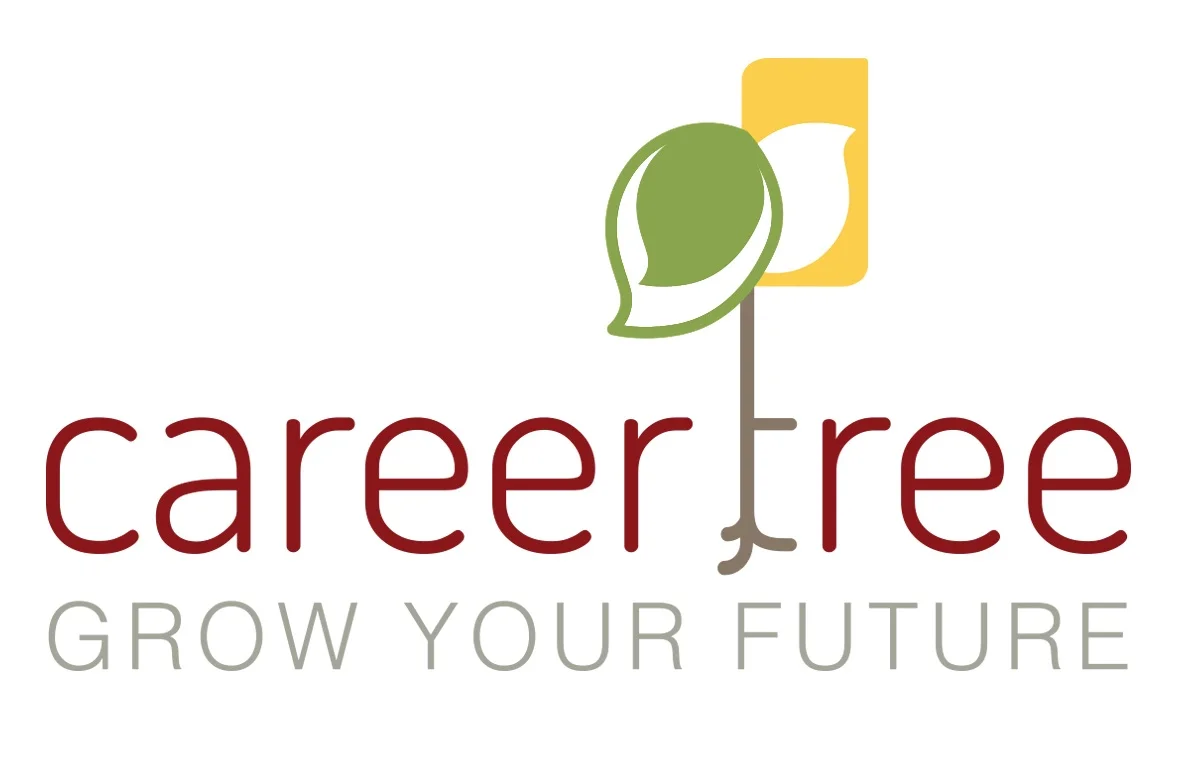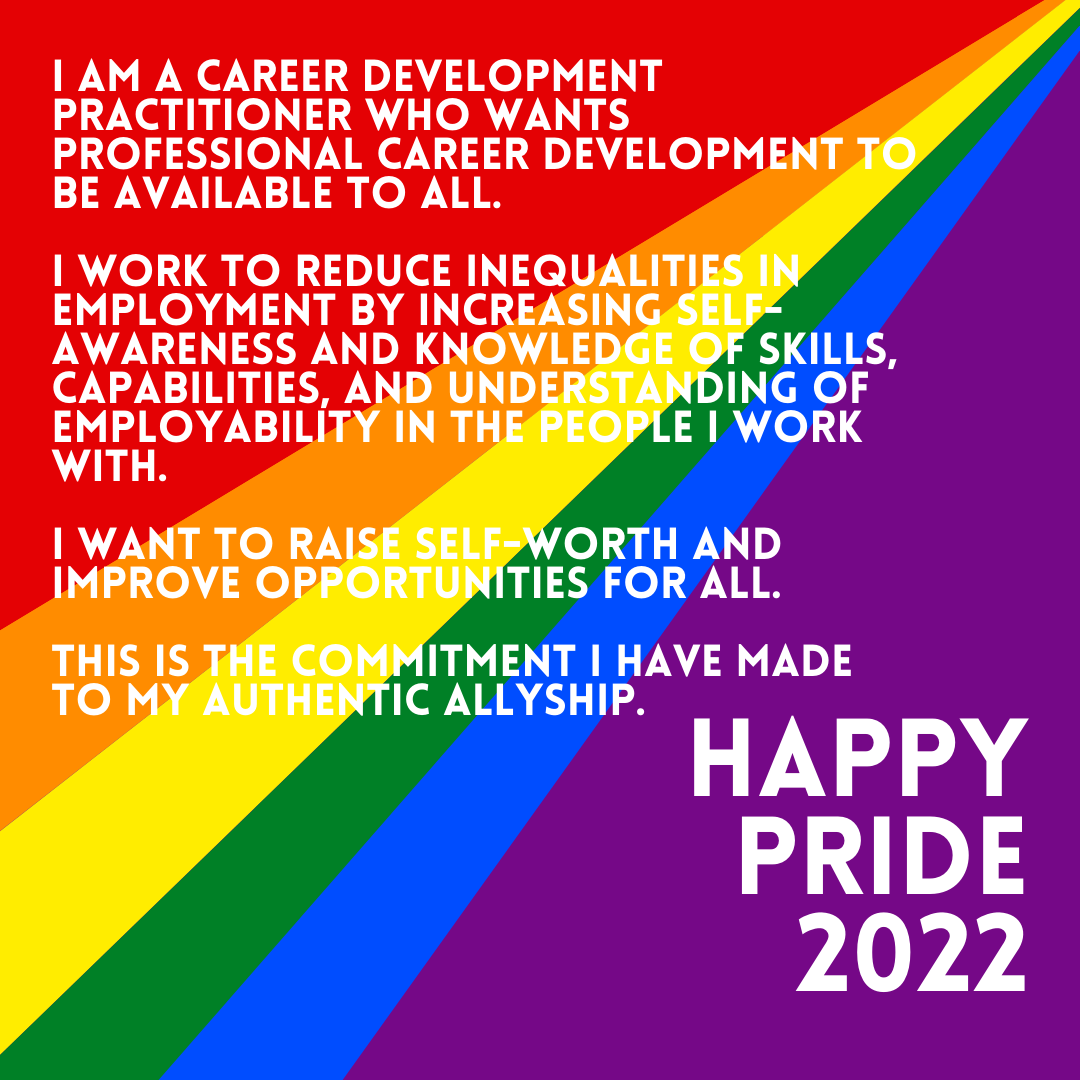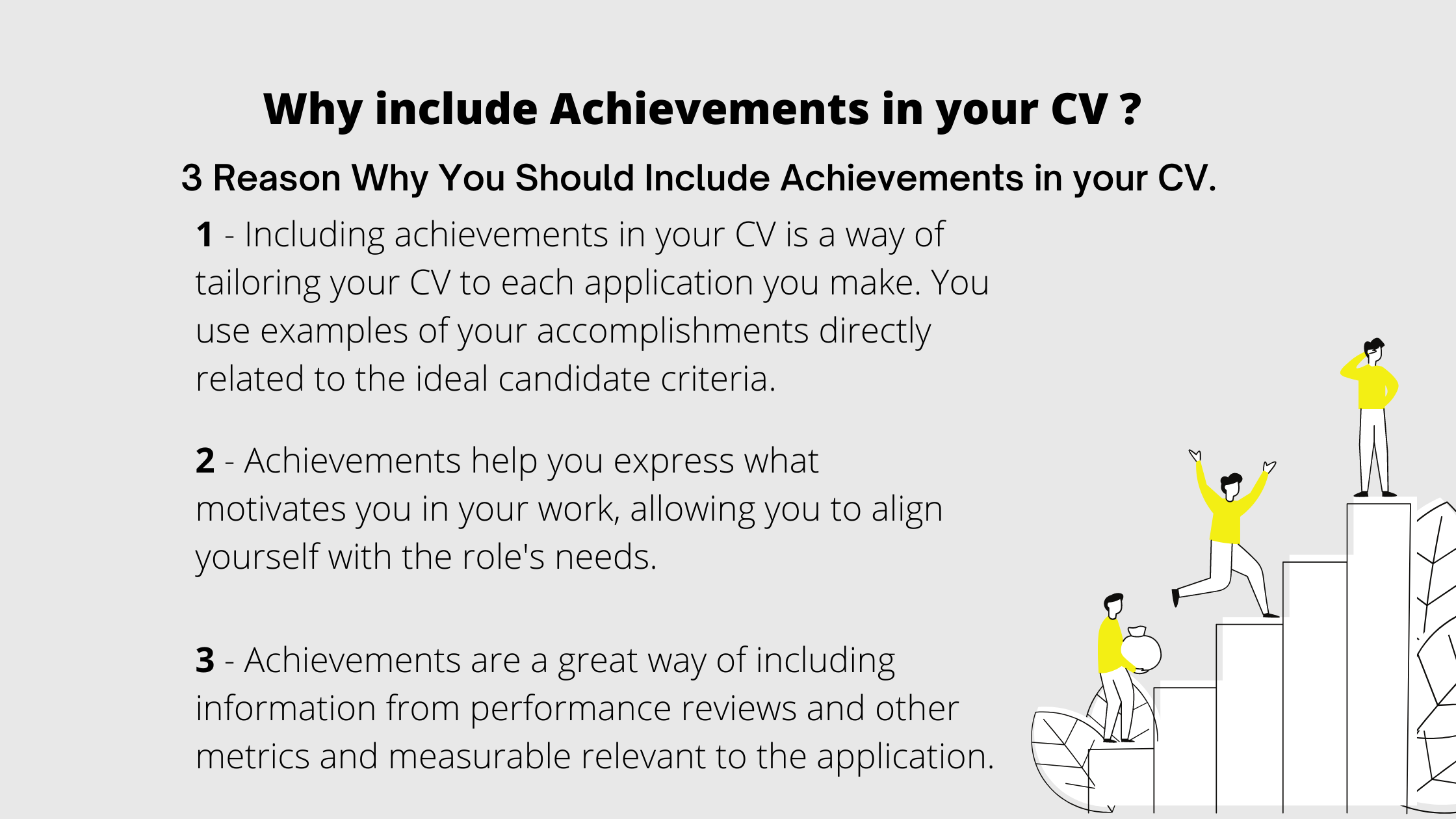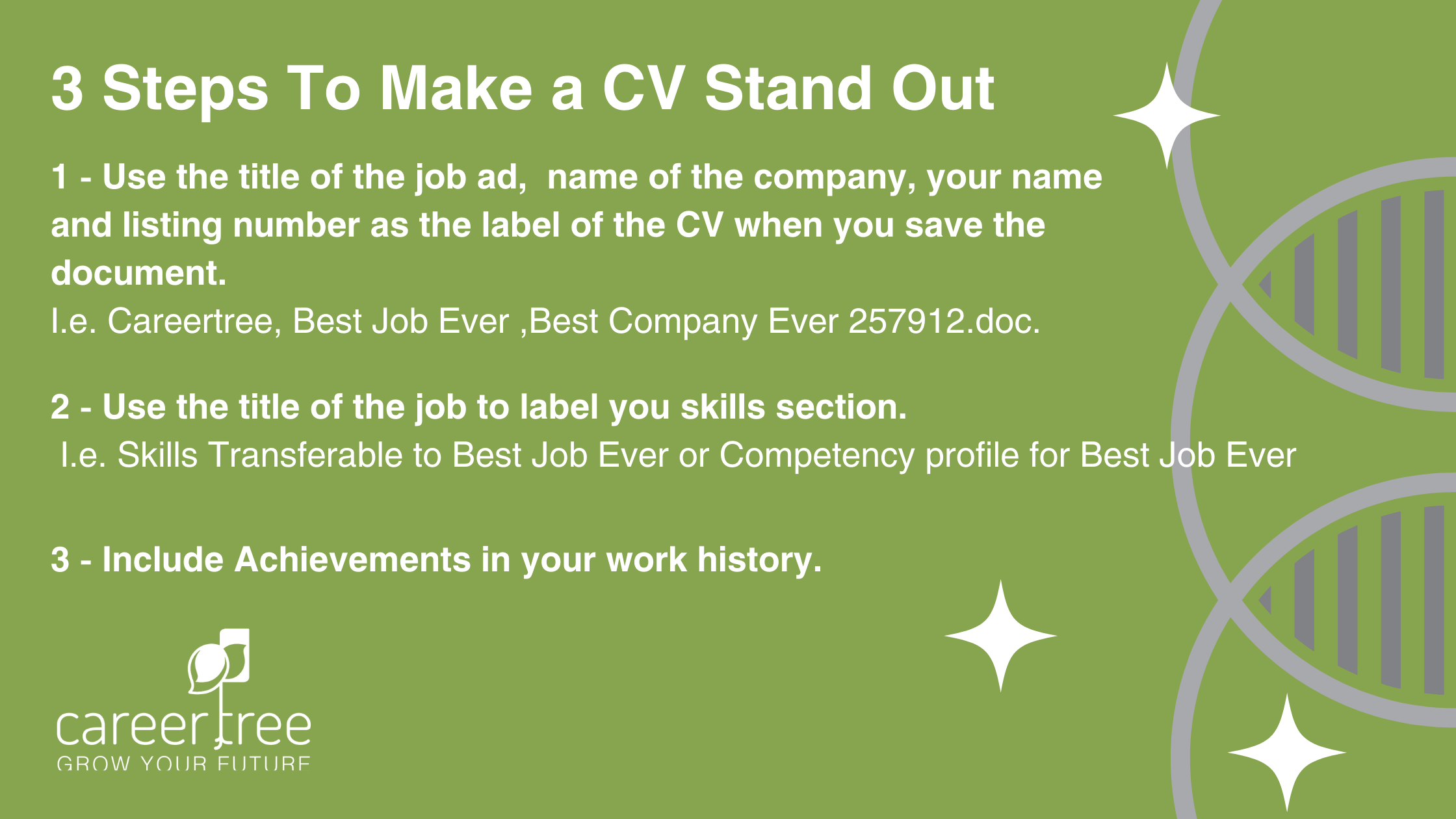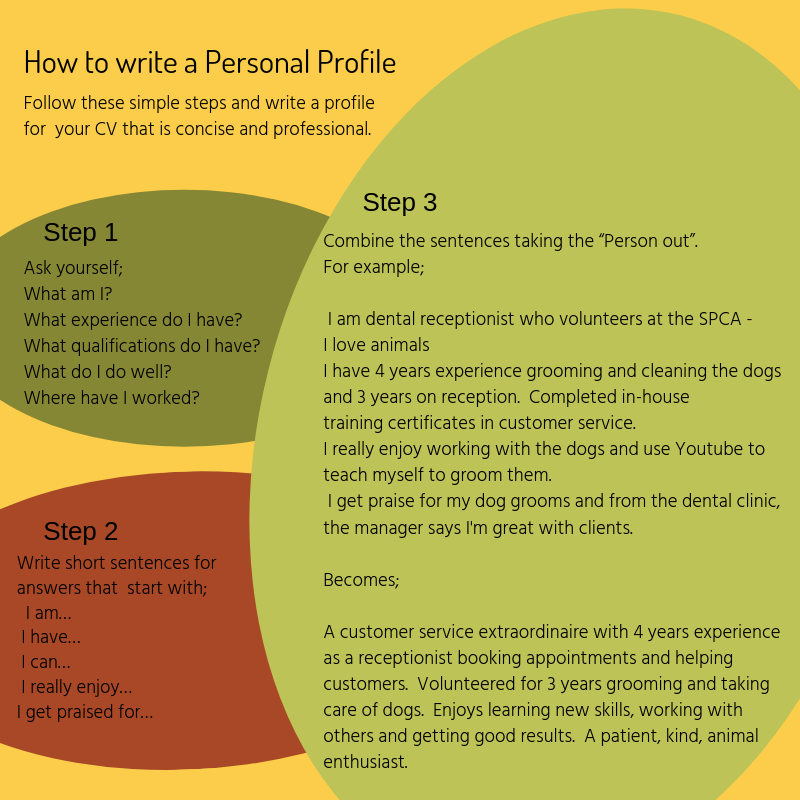1 Start the job search by developing a clear understanding of what you want from your next role.
2 Learn about the world of work. What is happening, who is hiring, and who employs people that do what you want to do?
3 Engage your natural support system and greater work network.
1 Do use the title of the advertised role in the heading of the skills section
2 Do tailor your CV to each application you want to make.
3 Do keep the information concise and to the point, 2 - 3 pages long.
4 Do use section headings to break down the information and make it easier to digest
5 Do ensure your CV, Cover Letter and supporting information are accurate, error-free and truthful
6 Do save the document using the label -
Your Name, The Tittle of the Role you are Applying For, the Name of the Company Advertising the job and the listing number.dox
Step 1 - Highlight all the Hard and Soft Skills
Step 2 - Use keywords and ideal criteria from the job advert as titles and headings of your Skills Profile.
Step 3 - Write Skills Statements which give evidence to each skill heading, your hard skills.
Step 4- Write a Personal Profile that includes a description of who you are, how you go about your job and your soft skills.
Why work with a Career Coach?
Searching for a job involves so much more than scanning online job sites, company websites and blanket dropping CV after CV to HR Managers.
A report - Career Development Works - commissioned by the Career Development Association of Australia summarised formal empirical research and professional experience on the effectiveness of professional career development interventions and services.
Using a meta-analysis of 47 independent research studies, which involved a total of 9575 participants, the report identified the top 6 job search interventions.
What are the top 6 job search interventions?
Job Search Skills - Learning how to recognise opportunities and suitable roles.
Improving Self-Presentation - Be able to promote and be assertive about work and achievement.
Boosting Self-efficacy - Working to enhance belief and confidence in abilities and capacity to undertake work tasks and duties and meet expectations.
Encouraging Proactivity - Career exploration and guidance, active involvement in career management, and developing a meaningful career plan.
Promoting Goal-Setting - Establishing meaningful actions and plans.
Enlisting Social Support - Connecting to supportive people, career allies and networks to become aware of and create opportunities.
This report established that people who participated in those who focused on these six job search interventions were overall 2.67 times more likely to secure a job than those that do not target these essential elements.
If you…
Develop Job Search Skills: You are 3.32 times more likely to find a job than those who don't.
If you Improve Self Presentation, you are 3.40 times more likely to secure a job.
If you Boost Self Efficacy, you are 3.25 times more likely to secure a job.
Success is even higher for interventions that target proactivity, goal setting, and enlisting social support.
If you become Proactive in your career management, you are 5.88 times more likely to secure a job.
If you plan and take steps to set and achieve goals, you are 4.67 times more likely to succeed than those who don't.
If you develop an awareness of your social support network and career allies, you are 4.26 times more likely to secure a job.
At Career Tree, we have developed the expertise to ensure that you, the career explorer, build and refine skills in the top 6 critical job search interventions.
The Intelligent Career Card Sort ICCS®, enables career explorers to work to understand the Why better, How and Who of careers, create meaningful plans and action steps to be proactive, set goals and enlist support and career allies.
Working to develop tools such as CVs and interview skills, develop opportunity awareness and job search strategies to boost self-efficacy, improve self-presentation and develop job search skills.
Reason 1 - it is one of the simplest ways of tailoring your CV to the role you are applying for, thus increasing your chance of selection for an interview.
Reason 2 - Including Achievements is an excellent way of expressing what motivates you. It helps to include metrics and measurable that are specific to you.
Reason 3 - Including Achievements/accomplishments in a CV helps to express the difference your employment has made to the organisation.
3 Reasons Why You Should Include Achievements in your CV.
1 - Including achievements in your CV is a way of tailoring your Cv to each application you make. You use examples of your accomplishments directly related to the ideal candidate criteria.
2 - Achievements help you express what motivates you in your work, allowing you to align yourself with the role's needs.
3 - Achievements are a great way of including information from performance reviews, other metrics and measurable relevant to the application.
How do you include Achievements in your Work History?
Follow this format when writing your work history.
Name of the Role, Organisation Worked for, location Dates
Include a brief description of the organisation - metrics-audience -customers etc.
Responsibilities/Duties - Include a brief description of the primary responsibilities/duties.
Achievements - Include a brief description of an achievement that aligns with the ideal candidate's requirements.
How to make your CV stand out from the rest.
It's essential to tailor your CV to the application you are making. By taking the reader on a journey through your information, you can help them to understand how you're suitable for the role.
Follow these steps to help you make a CV that will stand out from the crowd.
1 - Use the title of the role ad company and your name as the label of the CV when you save the document. I.e. Careertree Best Job Ever Best Company Ever 257912.doc.
2 - Use the title of the job to label your skills section. i.e. Skills Transferable to Best Job Ever or Competency profile for Best Job Ever
3 - Include Achievements in your work history.
Follow these three steps to writing the perfect professional profile, introducing you as the ideal candidate on your CV.
Include information relevant to the job advert.
Match your soft skills to the qualities of the ideal candidate.
Keep the statements concise and professional.
This simple method will help you tailor your CV to the role you are applying for.
Follow these three steps to writing the perfect professional profile, introducing you as the ideal candidate on your CV.
Include information relevant to the job advert.
Match your soft skills to the qualities of the ideal candidate.
Keep the statements concise and professional.
This simple method will help you tailor your CV to the role you are applying for.
